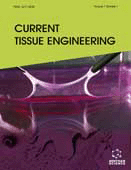Abstract
Adipose tissue-derived cell sources are attractive for regenerative medicine due to the easy and safe accessibility of adipose tissue, lack of ethical issues, and their availability in large quantities. We have developed an isolation method for distinct stem cells, and named the cells adipose tissue-derived multilineage progenitor cells (ADMPC). ADMPC have higher potential for differentiation into adipocytic, osteocytic, and chondrocytic progeny than the widely reported adipose tissue-derived stromal/stem cells (ADSC). ADMPC can also differentiate into hepatocyte-like clusters in vitro by induction with the hepatogenic cytokines, hepatocyte growth factor, oncostatin M, and basic fibroblast growth factor. In vivo, ADMPC were reprogrammed in situ into hepatocyte-like cells that corrected the metabolic defect in hyperlipidemic Watanabe rabbits after transplantation via the portal vein. Such cells are potentially useful in regenerative medicine as sources for in situ stem cell therapy.
Keywords: adipose tissue, ADMPC, in situ stem cell therapy, in situ reprogramming, in situ differentiation, ADSC, ADMSC, ASC, hepatocyte, umbilical cord.
 20
20

